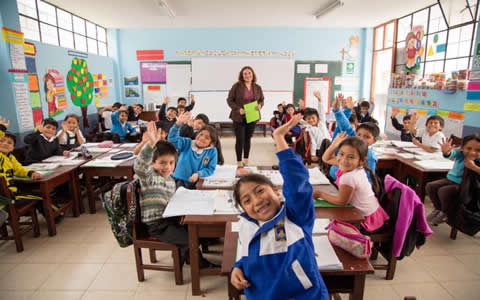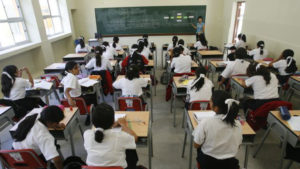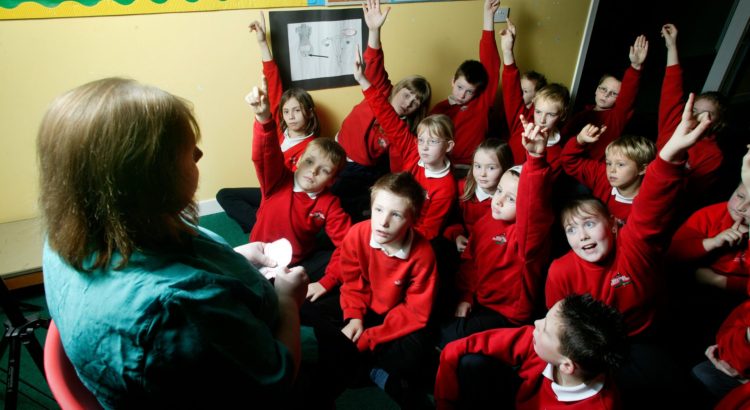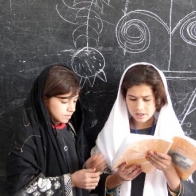Texto se encuentra disponible en www.minedu.gob.pe/curriculo/
Mediante Resolución Ministerial 281-2016-MINEDU publicada el 03 de junio, el Ministerio de Educación aprobó el Currículo Nacional de la Educación Básica, el cual entrará en vigencia a partir del 01 de enero del 2017 en todas las instituciones y programas educativos públicos y privados del país.
El Currículo Nacional de la Educación Básica, como instrumento base de la política educativa, tiene como objetivo la mejora de los aprendizajes de los estudiantes y enmarca los esfuerzos que el Minedu realiza por la mejora de la competitividad docente, la infraestructura educativa y la gestión de las Instituciones Educativas.
El Currículo aprobado el día de hoy, es el resultado de años de investigación y procesos de consulta sobre el modelo educativo que el Perú actual requiere, las recomendaciones plasmadas en el Proyecto Educativo Nacional al 2021 y el trabajo en equipo con Gobiernos Regionales y Locales. “El Currículo es un proyecto que ya ha madurado después de un largo proceso. Lo más importante ahora es enfocarnos en la implementación del Currículo para que llegue a los docentes e impacte en lo que los estudiantes aprenden”, expresó el Ministro Jaime Saavedra.
La implementación del Currículo se dará de manera progresiva y tiene prevista la diversificación curricular en regiones, la capacitación docente y el desarrollo de herramientas curriculares y materiales para toda la comunidad educativa. Al respecto, el Viceministro de gestión pedagógica, Flavio Figallo, señaló que “luego de 04 años de trabajo era indispensable avanzar y oficializar este Currículo. Estamos construyendo una ruta clara para los siguientes años, la cual se irá enriqueciendo con la experiencia y creatividad de nuestros docentes y contará con la asistencia técnica de las Regiones y el Minedu.”
A partir de hoy inicia una nueva etapa para la Educación en nuestro país. Invitamos a toda la comunidad educativa a apropiarse del Currículo Nacional y participar activamente en su implementación, de esta manera contribuiremos a la formación de la nueva generación de peruanos con las competencias necesarias para desarrollar al máximo su potencial y contribuir así al desarrollo de nuestro país.
Conoce el Currículo Nacional de la Educación Básica Clic aquí.










 Users Today : 134
Users Today : 134 Total Users : 35404401
Total Users : 35404401 Views Today : 170
Views Today : 170 Total views : 3333944
Total views : 3333944